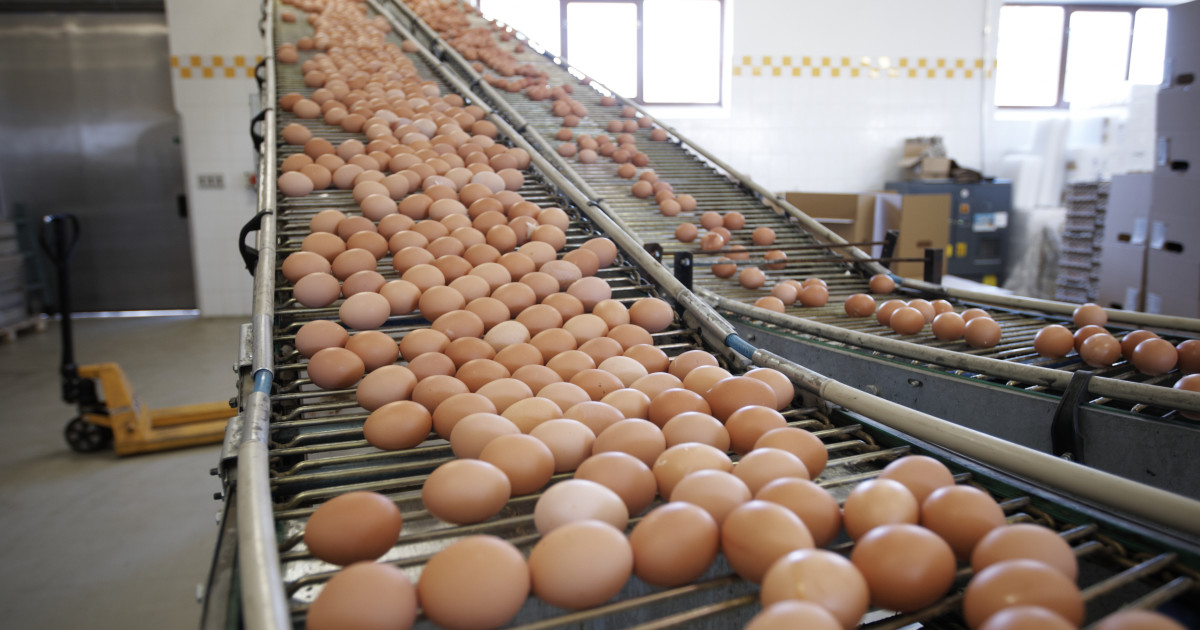Copyright Men's Journal

One of the most versatile ingredients in the kitchen is now at the center of a nationwide recall. More than 6 million eggs have been pulled from shelves after routine inspections found multiple strains of Salmonella infection contamination, and the FDA has classified the incident as a Class I recall—their highest risk category, meaning there’s a reasonable probability that consuming the product could cause serious health consequences or death. The recall involves cartons (12 and 18-count) of free-range large Grade A and Grade AA eggs produced by Black Sheep Egg Company, based in Walnut Ridge, Arkansas. The specific products carry UPC codes 860010568507 and 860010568538, with “best by” dates ranging from August 22, 2025 through October 31, 2025. Want trending news, op-eds, and top stories straight to your inbox? Sign up for our Daily newsletter. The eggs were distributed in Arkansas and Missouri and via wholesale/broker channels into Texas, California, Indiana, Mississippi and possibly other states. An inspection by the FDA found 40 environmental samples at the processing facility that tested positive for Salmonella, including seven distinct strains, some known to cause human illness. At this time the FDA has not confirmed that this facility is the source of a continuing outbreak of illness, but it nonetheless upgraded the recall to Class I given the risk. Here’s what you need to know: If you have cartons matching the UPC codes 860010568507 or 860010568538, or best-by dates between August 22 and October 31, 2025, and from Black Sheep Egg Company, do not eat them. Return them to the place of purchase for refund or discard safely. Clean and sanitize any surfaces, containers or utensils that may have touched the recalled eggs. Use hot soapy water or a dishwasher where possible to helps prevent cross-contamination. Monitor for symptoms of Salmonella infection. If you experience persistent high fever, bloody diarrhea, dehydration or other worrisome symptoms, seek medical attention. Retailers and restaurants are urged to not to sell or serve the recalled product. What Consuming Infected Eggs Could Mean Salmonella is a type of bacteria that commonly causes food-borne illness (salmonellosis). Symptoms usually begin 12 to 72 hours after consuming contaminated food and last around four to seven days. According to the Mayo Clinic, typical symptoms include diarrhea, fever, abdominal cramps and sometimes vomiting. For most healthy adults the illness resolves, but children under 5, adults over 65, pregnant women, and people with weakened immune systems are at much higher risk of serious complications, including bloodstream infection, arterial infection, heart inflammation, arthritis and even death. Food Almost 92,000 Pounds of Breakfast Burritos Have Been Recalled Matt Hladik Eggs are particularly vulnerable because raw eggs or cracked shells can allow bacteria inside or outside the shell; if eggs are improperly stored, handled or under-cooked, the risk increases. According to “The Daily Hornet,” that is why a facility finding multiple environmental positives is worrisome for contamination risk. Large-scale recalls like this underscore how even common everyday foods can carry risks if the supply chain or processing environment is compromised. The Class I designation signals the highest level of concern. The fact that seven different strains of Salmonella were found in environmental samples, rather than just one suggests a broader contamination issue at the facility. That raises questions about processing practices, oversight and industry standards for egg safety. What to watch going forward Fox Business warns to stay alert as the FDA may expand the recall as more information emerges. To date, no illnesses have been reported in connection with the Black Sheep Egg recall, but the FDA continues to monitor the situation. Potential investigations into the root cause at the processing facility—and whether changes in regulation or inspection protocols follow—could shape how egg production is handled nationwide. For consumers, it’s a reminder that safe food handling (refrigeration, avoiding raw/undercooked eggs, sanitizing surfaces) remains crucial even for foods that feel “safe” by default. For the industry and regulators, this event may prompt closer scrutiny of egg-processing environments and distribution chains, especially for free-range, pastured or broker-distributed eggs which may have additional handling steps.



